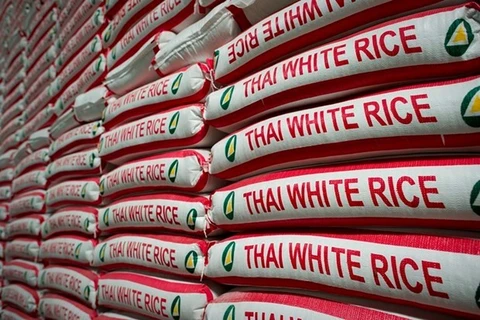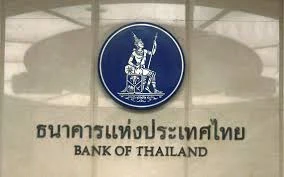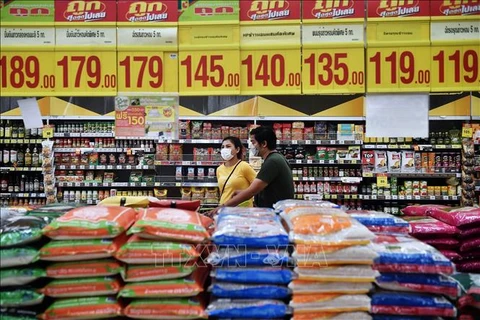Bangkok (VNA) – Thailand's economy is still projected to grow 3-3.5% this year, Finance Minister Arkhom Termpittayapaisith told a business seminar on October 5.
A weak baht is helping exports, he said, but supply chains problems, such as in the automobile and electronics sectors, are preventing exports from growing at its full potential.
Southeast Asia's second-largest economy is still in recovery, helped by increased exports and a pickup in the crucial tourism sector from the pandemic. Last year's growth of 1.5% was among the lowest in the region.
The minister's growth projection was matched by that by the Joint Standing Committee on Commerce, Industry and Banking (JSCCIB) while a 3.3% expansion was predicted by the Bank of Thailand (BoT).
Thailand's headline inflation rate was less than expected in September, decelerating from the previous month, Thai Commerce Ministry data showed the same day, but above-target consumer prices reinforced expectations of a further interest rate hike in November.
The headline CPI rose 6.41% last month from a year earlier, helped by easing energy prices and last year's low base, and down from August's 7.86% increase, which was a 14-year high, according to the data.
Inflation may fall further in the fourth quarter of this year mainly due to government support measures for energy and food prices, the ministry said. It forecast headline inflation to average between 5.5% and 6.5% this year./.
A weak baht is helping exports, he said, but supply chains problems, such as in the automobile and electronics sectors, are preventing exports from growing at its full potential.
Southeast Asia's second-largest economy is still in recovery, helped by increased exports and a pickup in the crucial tourism sector from the pandemic. Last year's growth of 1.5% was among the lowest in the region.
The minister's growth projection was matched by that by the Joint Standing Committee on Commerce, Industry and Banking (JSCCIB) while a 3.3% expansion was predicted by the Bank of Thailand (BoT).
Thailand's headline inflation rate was less than expected in September, decelerating from the previous month, Thai Commerce Ministry data showed the same day, but above-target consumer prices reinforced expectations of a further interest rate hike in November.
The headline CPI rose 6.41% last month from a year earlier, helped by easing energy prices and last year's low base, and down from August's 7.86% increase, which was a 14-year high, according to the data.
Inflation may fall further in the fourth quarter of this year mainly due to government support measures for energy and food prices, the ministry said. It forecast headline inflation to average between 5.5% and 6.5% this year./.
VNA
























